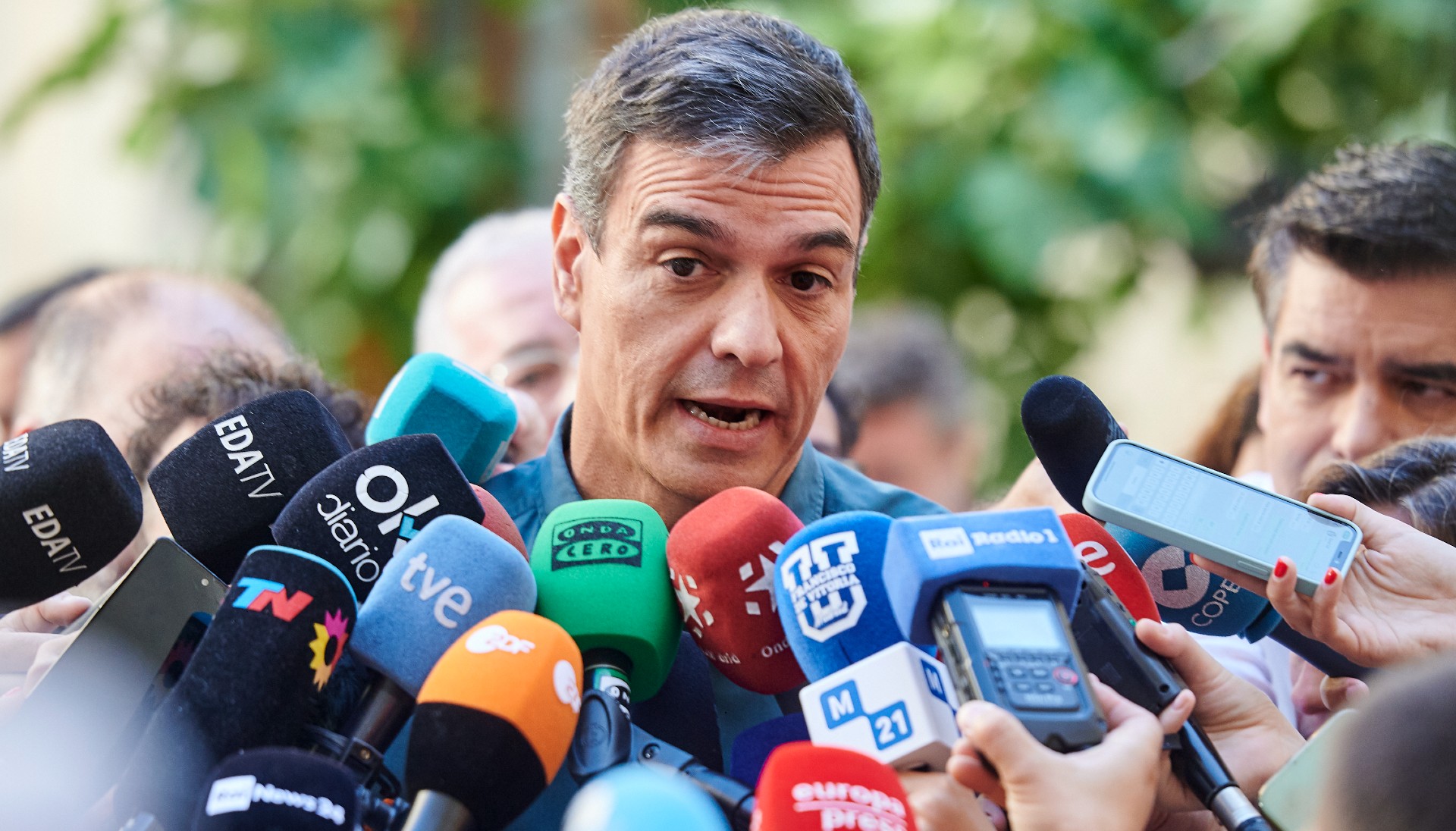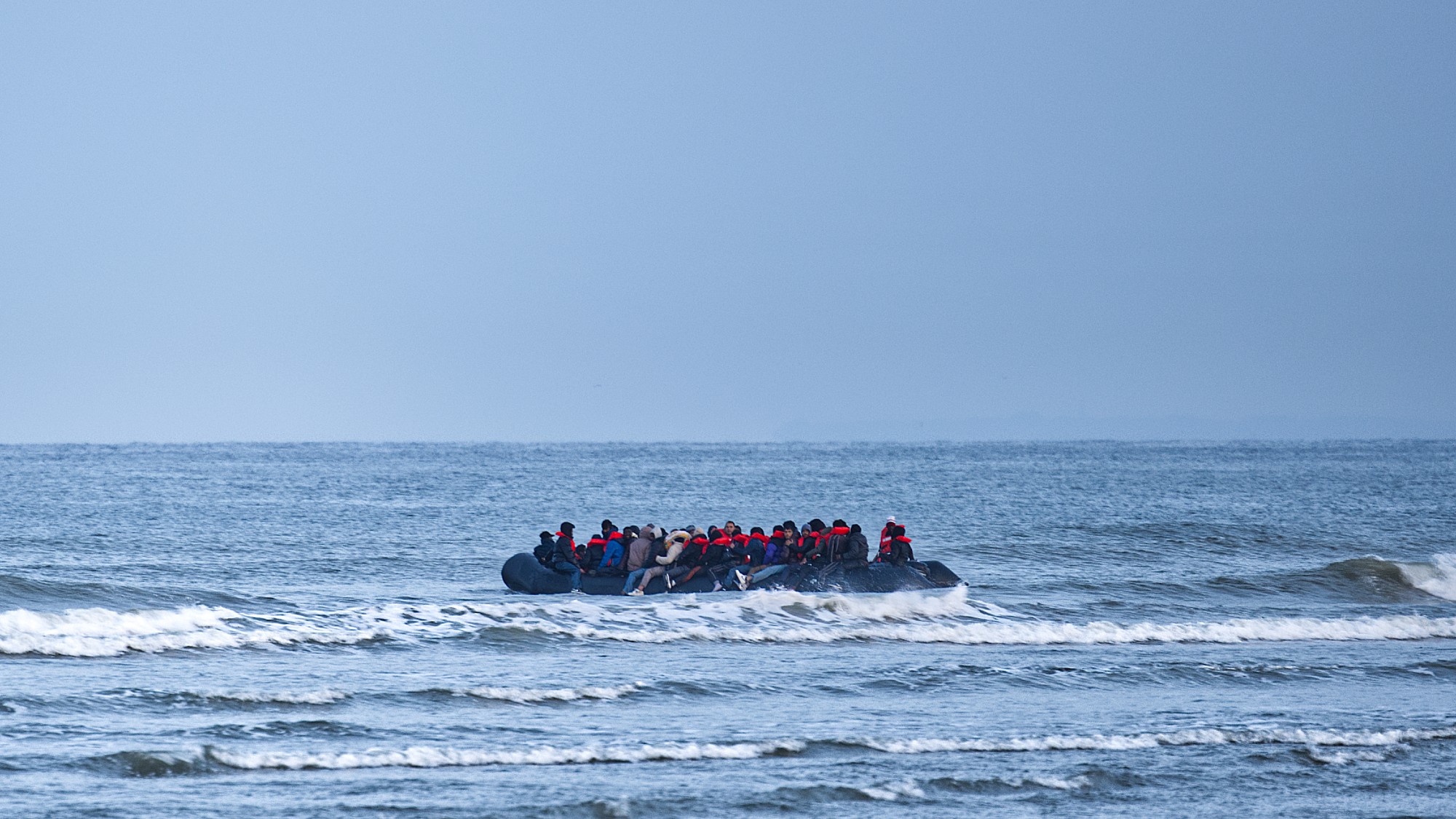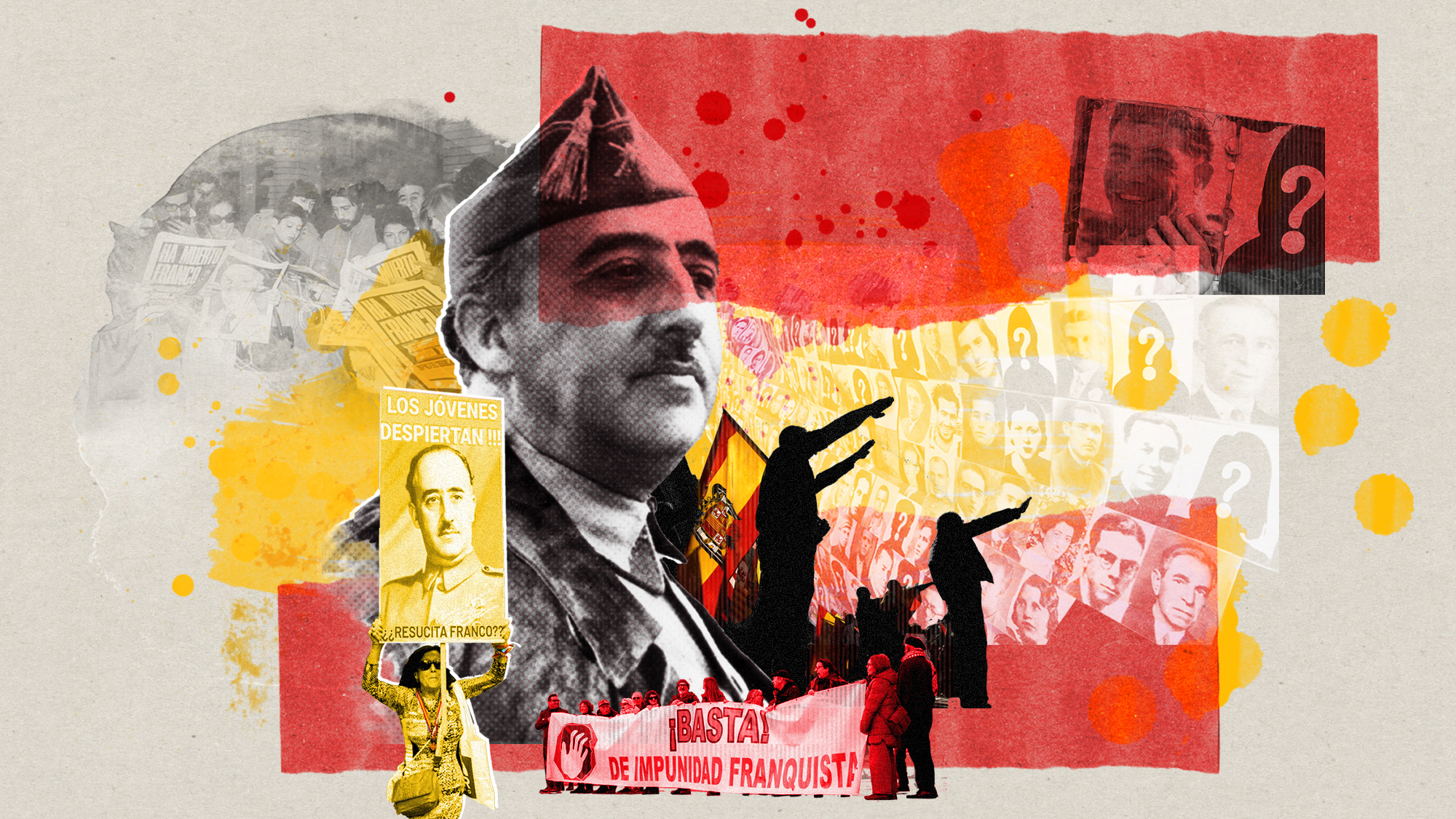Spain’s uncertain political future after election deadlock
Conservative bloc fails to win majority, with fear of far-right driving support for Pedro Sánchez and Socialist-led coalition

A free daily email with the biggest news stories of the day – and the best features from TheWeek.com
You are now subscribed
Your newsletter sign-up was successful
Spain is facing months of political gridlock after parliamentary elections saw the conservative bloc fail to win enough votes to form a government.
Socialist Prime Minister Pedro Sánchez called Sunday’s vote following a wipeout at regional and municipal elections in May. He campaigned on fears of the far right entering government for the first time since the country returned to democracy after General Franco’s death five decades ago.
This prospect, and the heated nature in which the election campaign was fought, led many to describe Sunday’s vote as the most consequential to be held in Spain in recent memory.
The Week
Escape your echo chamber. Get the facts behind the news, plus analysis from multiple perspectives.

Sign up for The Week's Free Newsletters
From our morning news briefing to a weekly Good News Newsletter, get the best of The Week delivered directly to your inbox.
From our morning news briefing to a weekly Good News Newsletter, get the best of The Week delivered directly to your inbox.
What was the result?
Despite polls consistently predicting a clear win for the centre-right Popular Party (PP) it secured just over 33% of the vote, with Sánchez’s Spanish Socialist Workers’ Party (PSOE) performing much better than expected to win 31.7%. The far-right Vox party saw its vote share drop from 15.1% in 2019 to 12.4%, just above the new left-wing coalition Sumar.
With all votes counted, PP and Vox had secured 169 seats, while PSOE and Sumar had 153 – both well below the 176 needed to form a majority. The result leaves Spain facing “political stalemate, uncertainty and weeks or months of negotiations”, said The Times.
Who were the winners and losers?
For the past week commentators have focused on the surge of the hard right, a pattern seen across Europe. “That, as it turned out, was not the main story,” said The Economist. Experts in Spain and elsewhere failed “to reckon with Spain’s comeback-artist-in-chief: Pedro Sánchez”.
“A high-stakes political gambler,” as The Times described him, Sánchez “is prone to take monumental risks and his last one, to call a snap election, paid off”.
A free daily email with the biggest news stories of the day – and the best features from TheWeek.com
His surprise showing, which saw PSOE actually gain two seats, means he can now try to “cobble together the 2.0 version of his coalition, which the right dubbed a ‘Frankenstein government’ of far-left and separatist allies”, said the paper.
By contrast, PP leader Alberto Núñez Feijóo appears to have suffered from his decision to enter into more regional and municipal coalitions with the far-right following May’s elections.
“The chaotic outcome of these coalitions – which included bans on LGBT+ flags, culture wars over theatre and the closing of bike lanes – had two effects,” said the Financial Times. It turned out to be a “great motivator for many voters on the left”, and it also “dulled the enthusiasm of some centre-right PP voters who already had misgivings about Vox”.
What happens now?
Forming parliamentary majorities has been a “puzzle in Spain since the country effectively abandoned bipartisanship in 2015”, reported El Pais. Eight years later, “although the two main parties concentrate most of the votes, the labyrinth of Congress has become even more complicated, and it is very difficult to conjecture what the way out may be”.
On Sunday night, as the tightness of the race became clear, Feijóo said he would attempt to form a minority government but “right now [he] does not have the backing needed to make his candidacy for prime minister viable”, said Politico.
The problem, reported The Guardian, is that entering into coalition with the far-right “has not endeared the PP to more moderate parties, which simply won’t entertain supporting an alliance that includes Vox, an anti-feminist, anti-immigrant party that denies the existence of gender-based violence and human-made climate change”.
Any attempt by Feijóo to try to forge a minority government would be sunk by the PSOE’s refusal to back it or to abstain to allow it into office.
Sánchez, meanwhile, has a “possible – though extremely complex – route to victory”, said Politico.
Although the left-wing bloc is unlikely to secure the backing of the 176 MPs needed for Sánchez to be confirmed as prime minister when parliament reconvenes on 17 August, it could make a bid during the second round of voting, in which the candidate to head the new government only needs to receive more yeas than nays.
This could see Sánchez call on regional partners, most notably the Basque and Catalan separatist parties, to abstain in exchange for concessions. This is in itself would prove controversial.
If no candidate secures a majority within two months of the first vote on the prime minister, new elections must be held.
Looking at the parliamentary arithmetic as it stands, “the left would have a better chance of forming a majority”, concluded El Pais. “Of course, if the deadlock persists and the possibility of a repeat election begins to take shape, some unforeseen twist could arise.”
-
 Political cartoons for February 19
Political cartoons for February 19Cartoons Thursday’s political cartoons include a suspicious package, a piece of the cake, and more
-
 The Gallivant: style and charm steps from Camber Sands
The Gallivant: style and charm steps from Camber SandsThe Week Recommends Nestled behind the dunes, this luxury hotel is a great place to hunker down and get cosy
-
 The President’s Cake: ‘sweet tragedy’ about a little girl on a baking mission in Iraq
The President’s Cake: ‘sweet tragedy’ about a little girl on a baking mission in IraqThe Week Recommends Charming debut from Hasan Hadi is filled with ‘vivid characters’
-
 ‘The West needs people’
‘The West needs people’Instant Opinion Opinion, comment and editorials of the day
-
 The Mandelson files: Labour Svengali’s parting gift to Starmer
The Mandelson files: Labour Svengali’s parting gift to StarmerThe Explainer Texts and emails about Mandelson’s appointment as US ambassador could fuel biggest political scandal ‘for a generation’
-
 ECHR: is Europe about to break with convention?
ECHR: is Europe about to break with convention?Today's Big Question European leaders to look at updating the 75-year-old treaty to help tackle the continent’s migrant wave
-
 X’s location update exposes international troll industry
X’s location update exposes international troll industryIn the Spotlight Social media platform’s new transparency feature reveals ‘scope and geographical breadth’ of accounts spreading misinformation
-
 Revisionism and division: Franco’s legacy five decades on
Revisionism and division: Franco’s legacy five decades onIn The Spotlight Events to mark 50 years since Franco’s death designed to break young people’s growing fascination with the Spanish dictator
-
 The party bringing Trump-style populism to Japan
The party bringing Trump-style populism to JapanUnder The Radar Far-right party is ‘shattering’ the belief that Japan is ‘immune’ to populism’
-
 Does Reform have a Russia problem?
Does Reform have a Russia problem?Talking Point Nigel Farage is ‘in bed with Putin’, claims Rachel Reeves, after party’s former leader in Wales pleaded guilty to taking bribes from the Kremlin
-
 Groypers: the alt-right group pulled into the foreground
Groypers: the alt-right group pulled into the foregroundThe Explainer The network is led by alt-right activist Nick Fuentes